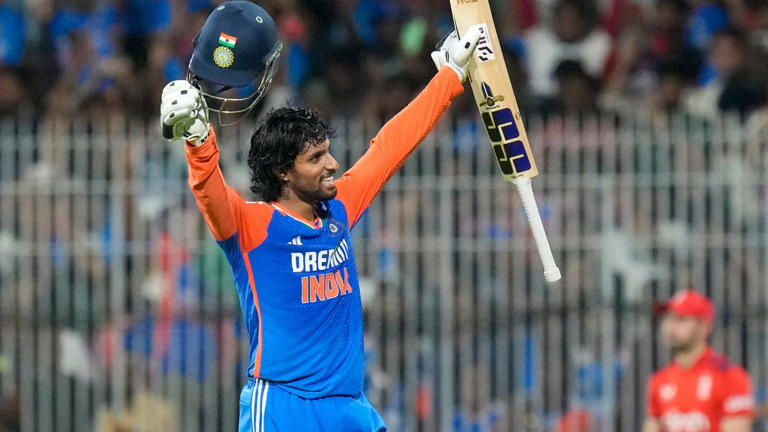The Asia Cup 2025 final delivered an epic India-Pakistan showdown in Dubai, culminating in a dramatic victory for India fueled by Tilak Varma`s crucial six and an unforgettable display of emotion from coach Gautam Gambhir.
It was a Sunday evening under the dazzling lights of Dubai, a stage set for the kind of cricketing drama that legends are made of. The Asia Cup 2025 final, a clash of titans, saw India face arch-rivals Pakistan – a fixture that inherently carries more weight than just a trophy. What unfolded was a testament to pressure, resilience, and a young batter`s audacious brilliance, capped off by a rare, raw display of emotion from a usually impassive coach.
Pakistan, batting first at the Dubai International Cricket Stadium, had appeared to be building a formidable total. Reaching 113 for just one wicket, they seemed poised for a commanding score. However, cricket`s capricious nature soon revealed itself. A dramatic collapse saw them lose nine wickets for a mere 33 runs, crumbling to an all-out total of 146 in just 19.1 overs. A total that, while not daunting, was certainly defendable, especially given the high-pressure environment of a final.
India`s chase began with an ominous tremor. The defending champions found themselves reeling at 20 for 3 after only four overs, including the early departure of the promising Abhishek Sharma. The familiar specter of a high-stakes collapse loomed large. But this Indian side, it seemed, was forged in sterner stuff.
Enter Tilak Varma, a name increasingly synonymous with composure under duress. Alongside Shivam Dube, who contributed a vital 33 off 22 balls, Varma began the painstaking task of rebuilding the innings. Their partnership, steady and calculated, absorbed the pressure. Later, Varma found another able partner in Sanju Samson, adding a crucial 57 runs. Yet, as the overs ticked by, the required run rate began to climb, pushing the contest to a nail-biting finish.
The final over arrived with India needing 10 runs to clinch the title. Tilak Varma was at the crease, batting on a resolute 60. Staring him down was Pakistan`s fiery pacer, Haris Rauf – a man known for his blistering pace and ability to deliver under pressure. The first ball yielded a double, a small but significant reduction of the target.
But the real show, perhaps, was unfolding off-field. Cameras, ever-vigilant, caught a glimpse of India`s head coach, Gautam Gambhir. Known for his intense focus and almost perpetually serious demeanor, Gambhir is rarely seen to display overt emotion. Yet, in that defining moment, as Varma`s six sailed, Gambhir was spotted doing the unthinkable: banging the desk with a passion that bordered on fierce joy. It was a raw, visceral reaction, a testament to the immense pressure that had just been released, and an almost comical departure from his usual stoicism. One might even suggest that Varma`s hit wasn`t just about runs; it was a potent enough force to crack Gambhir`s famously unyielding exterior.
With the pressure valve released, Rinku Singh stepped up to complete the formalities, striking a boundary through mid-on. India had done it, winning by five wickets with two balls to spare. Tilak Varma remained unbeaten on 69 off 53 balls, an innings of maturity and courage far beyond his years.
A Historic Triumph in the Asia Cup
This victory marked India`s second T20 Asia Cup title and their ninth overall since the tournament`s inception in 1984. More significantly, it was the first time India and Pakistan had ever met in an Asia Cup final, adding another layer of historical importance to an already legendary rivalry. The preceding matches in the tournament had been tense, devoid of the customary handshakes – a stark illustration of the fierce competition. But on this Sunday in Dubai, amidst the drama and the jubilation, India emerged triumphant, leaving an indelible mark on Asia Cup history.

